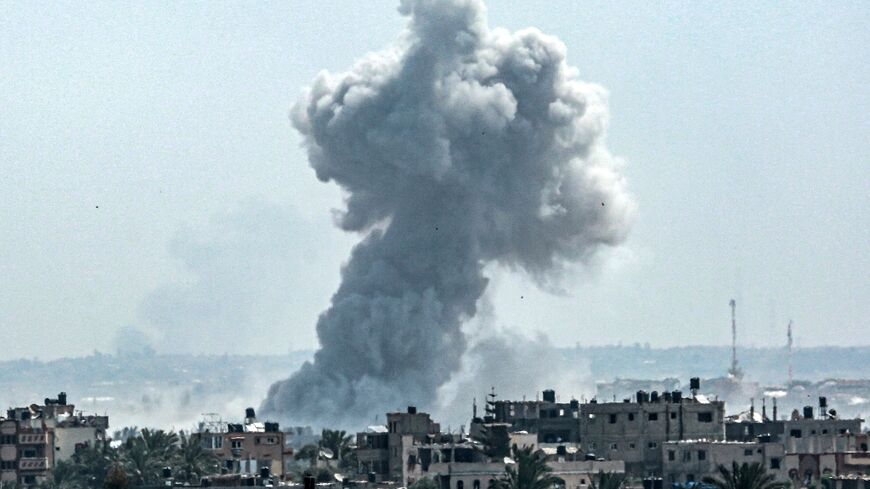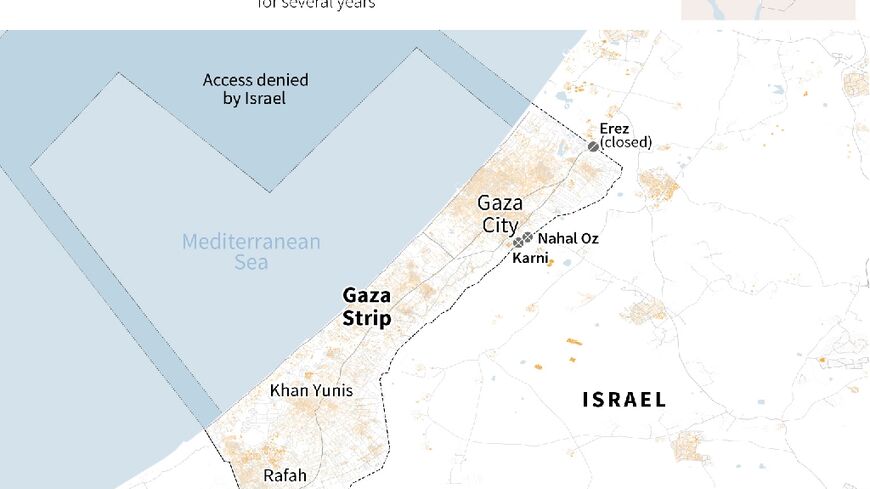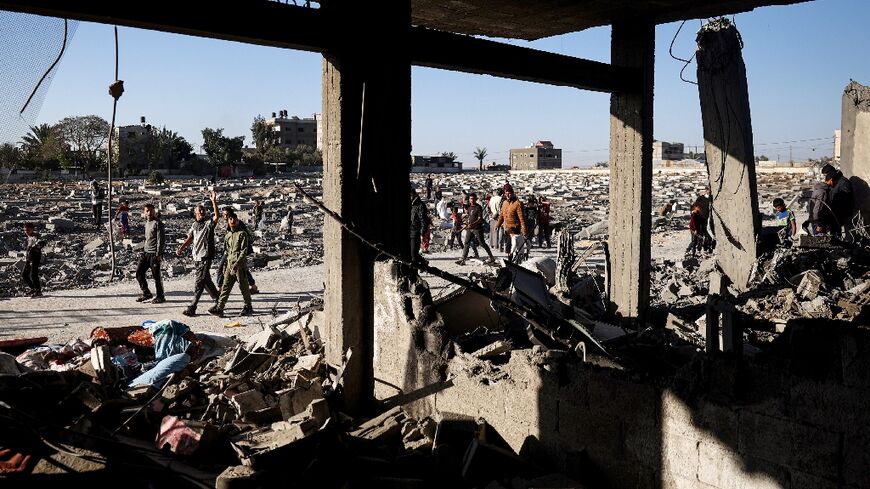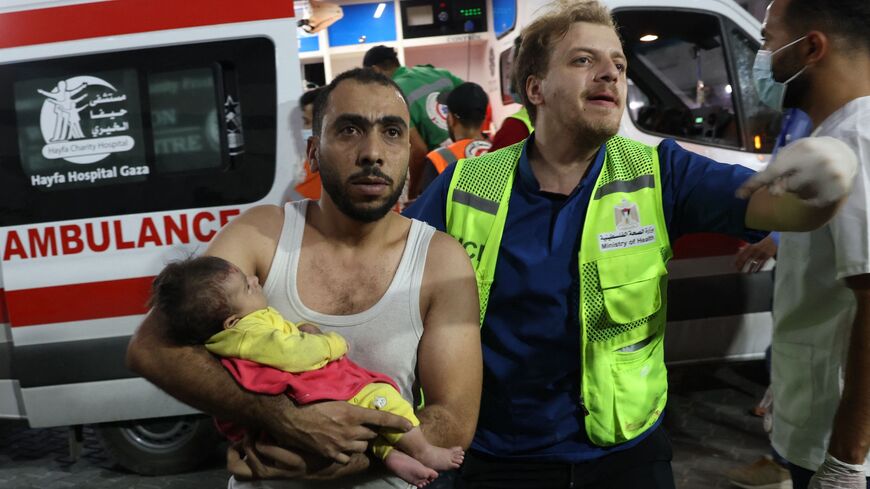Rafah evacuations not 'possible' under current conditions: Red Cross
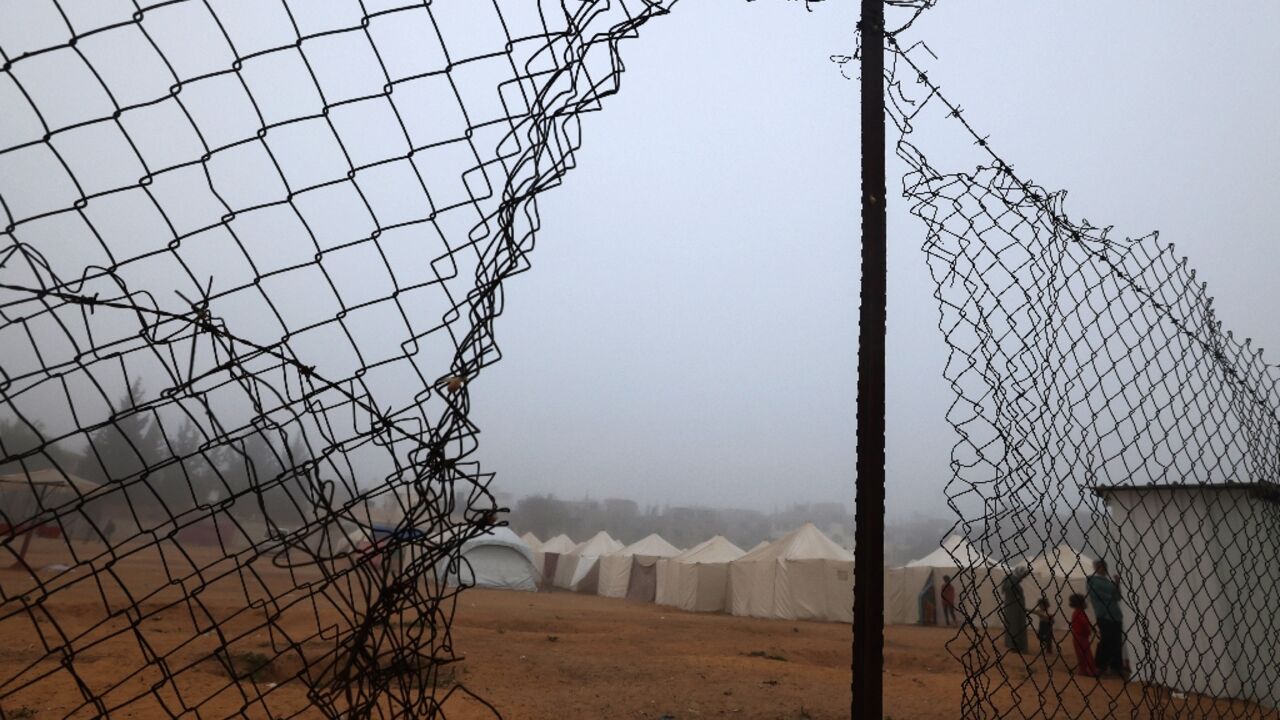
Humanitarian workers have no knowledge of plans to evacuate Palestinians from Gaza's southernmost city ahead of an expected Israeli assault, but such a transfer would not be "possible" under current conditions, a Red Cross official told AFP on Tuesday.
"The rumour is that the probability of a major operation in Rafah is increasing," Fabrizio Carboni, Middle East regional director for the International Committee of the Red Cross (ICRC), said on the sidelines of an aid conference in the United Arab Emirates.
"When we see the level of destruction in the middle area (of Gaza) and in the north, it's not clear to us where people will be moved to... where they can have decent shelter and essential services," he added.
"So today, with the information we have and from where we stand, we don't see this (massive evacuation) as possible."
More than 1.5 million of Gaza's population of 2.4 million had sheltered in Rafah, the last major population centre in Gaza that Israeli ground troops have yet to enter, though thousands have been seen heading back north.
Israeli Prime Minister Benjamin Netanyahu has for two months talked of sending troops into Rafah to go after Hamas, the Palestinian militant group that runs Gaza.
On Sunday, he said the Israeli military would increase pressure to "deliver additional and painful blows" to the group behind the October 7 attack on Israel which triggered the ongoing war.
But Israel's allies including Washington have warned against a Rafah operation, fearing a worsening of Gaza's already catastrophic humanitarian conditions.
"We don't see for the time being any plans for civilian evacuations," Carboni said during the interview on Tuesday at the Dubai International Humanitarian Aid and Development Conference (DIHAD).
But "there is no condition for a military operation without devastating humanitarian consequences," he added.
"Considering the level of destruction, considering that people are tired, some of them wounded and sick, and the limited access to food and essential services, I see (evacuations) as extremely challenging."
- 'Apocalyptic situation' -
The Israeli government said it was planning different evacuation scenarios, including the creation of tent cities that would be spared the fighting and would be set up with international support.
Citing Egyptian officials briefed on the Israeli plan, the Wall Street Journal reported that the evacuation operation would last two to three weeks and be carried out in coordination with the United States and Arab countries, including the UAE as well as Egypt.
But Carboni said an evacuation would be "difficult" to complete in that time frame.
Also speaking to AFP at DIHAD on Tuesday, the head of the Norwegian Refugee Council (NRC) said that "everybody seems to be on a countdown to war across the largest displacement camp on earth, which is Rafah".
Describing a Rafah onslaught as an "apocalyptic situation", Jan Egeland said aid workers operating inside Gaza have not been briefed on plans to mitigate civilian suffering during a Rafah offensive.
"There is no information, no consultation with the humanitarians, no advice, no hope," he said.
Humanitarians in Gaza are "not hearing from the donors. They're not hearing from the Western sponsors of Israel, and nothing from Israel itself," Egeland said.
"What they hear is that Netanyahu says that he will attack but not plans for where should the civilians go, how can aid be provided or how can access be secured.
"We are completely in the dark on how to mitigate this countdown to a catastrophe."
- 'No safe place' -
The little aid that is entering Gaza is being distributed in real time leaving no buffer stock that could be used in the event of a massive population movement, Egeland said.
"There is no stocks, there is no fuel and more importantly, there is no liquidity. There is no money, we cannot pay our staff salaries. We cannot pay those who deliver the services," the NRC chief added.
Egeland said some Palestinians had returned to areas in northern Gaza in recent weeks but that more than one million remained in Rafah.
For those who have left "what awaits them in the north is ruins, complete ruins and unexploded ordinance and, in many cases, more bombardment," he said.
"There is no safe place in Gaza if people leave Rafah."
The Gaza war began with the unprecedented Hamas attack on Israel on October 7 that resulted in the deaths of 1,170 people, mostly civilians, according to an AFP tally of Israeli official figures.
Israel's retaliatory offensive has killed at least 34,183 people in Gaza, mostly women and children, according to the Hamas-run territory's health ministry.


